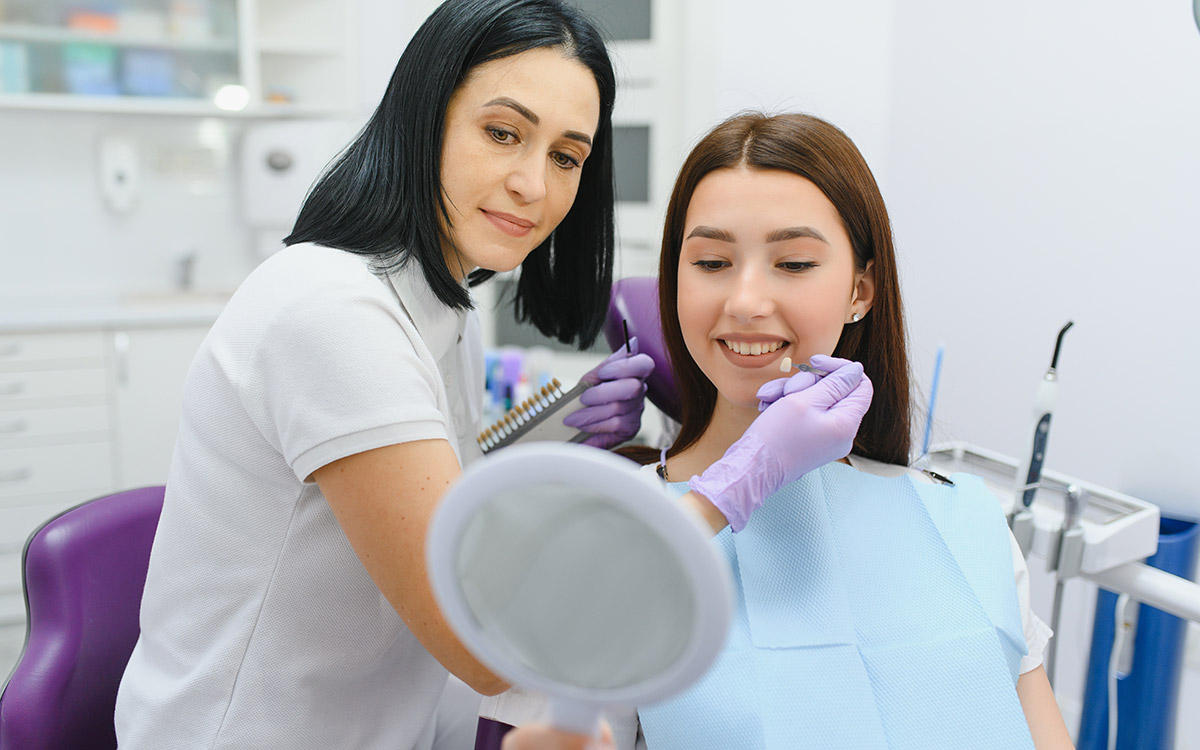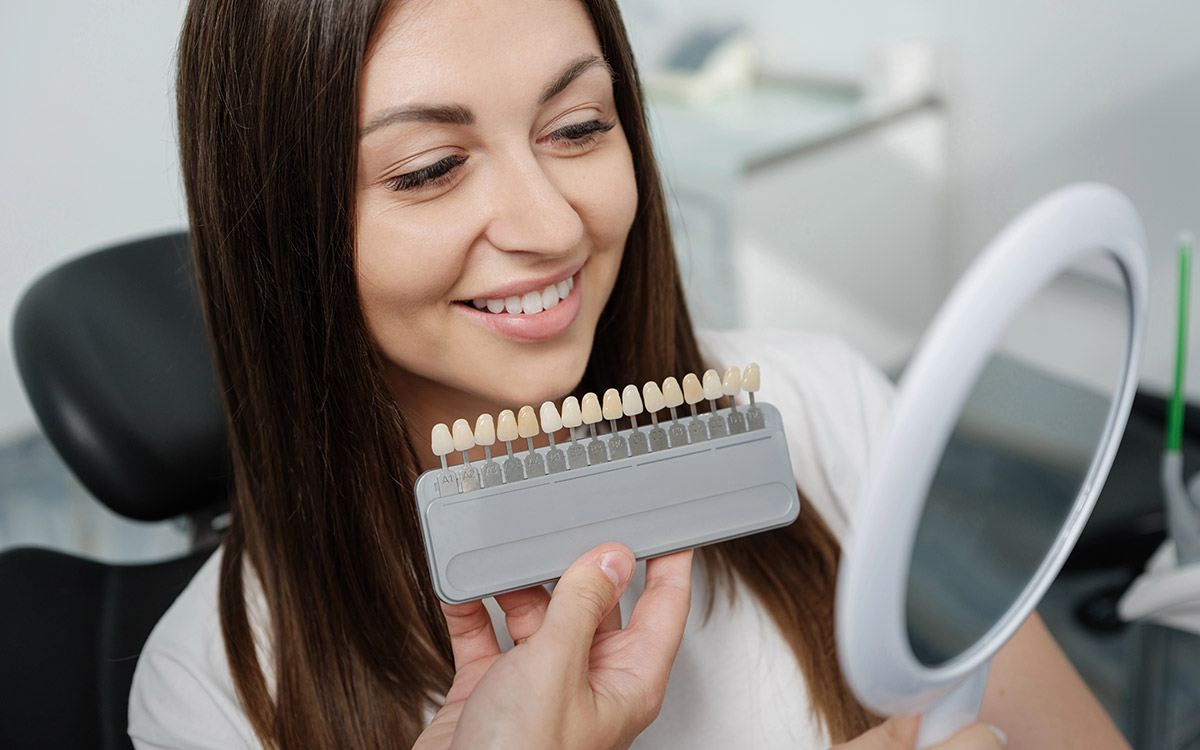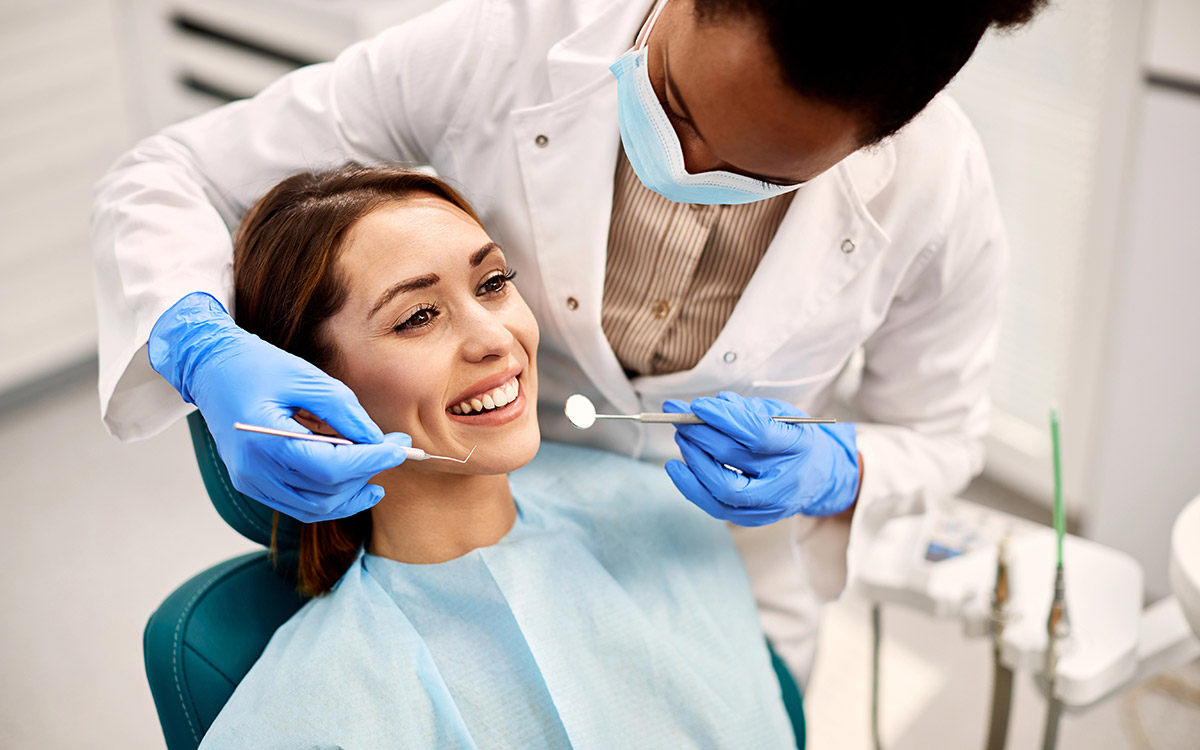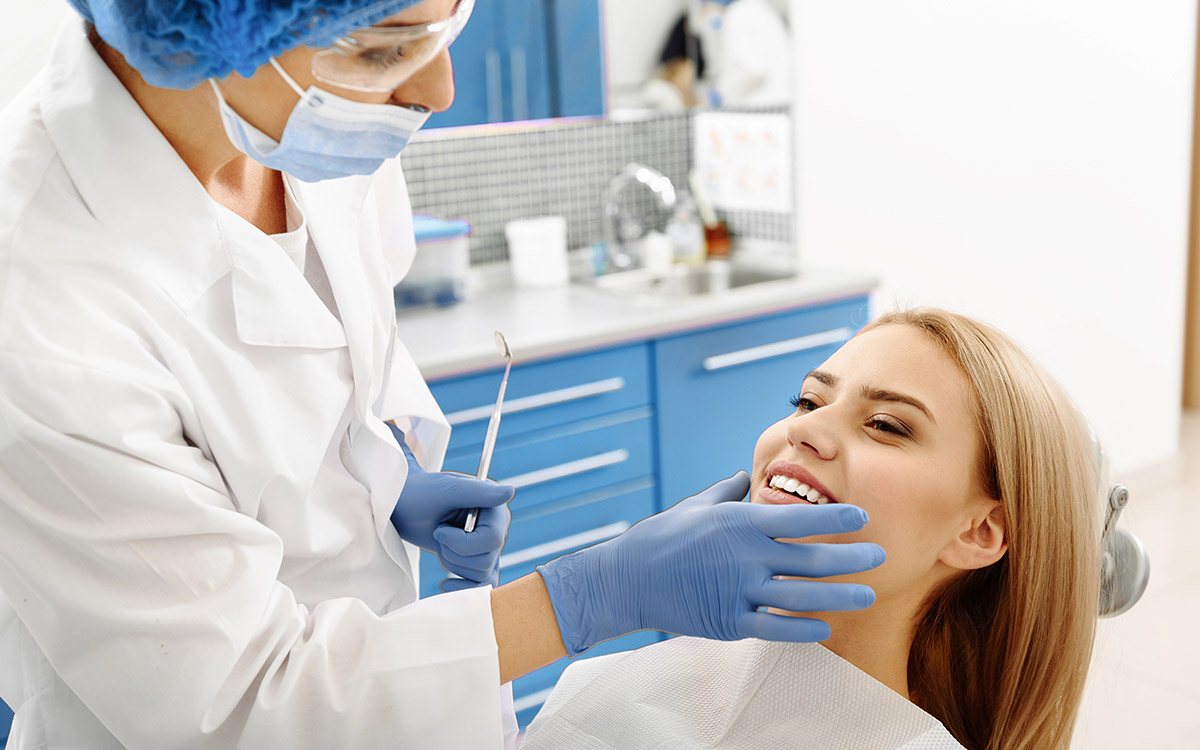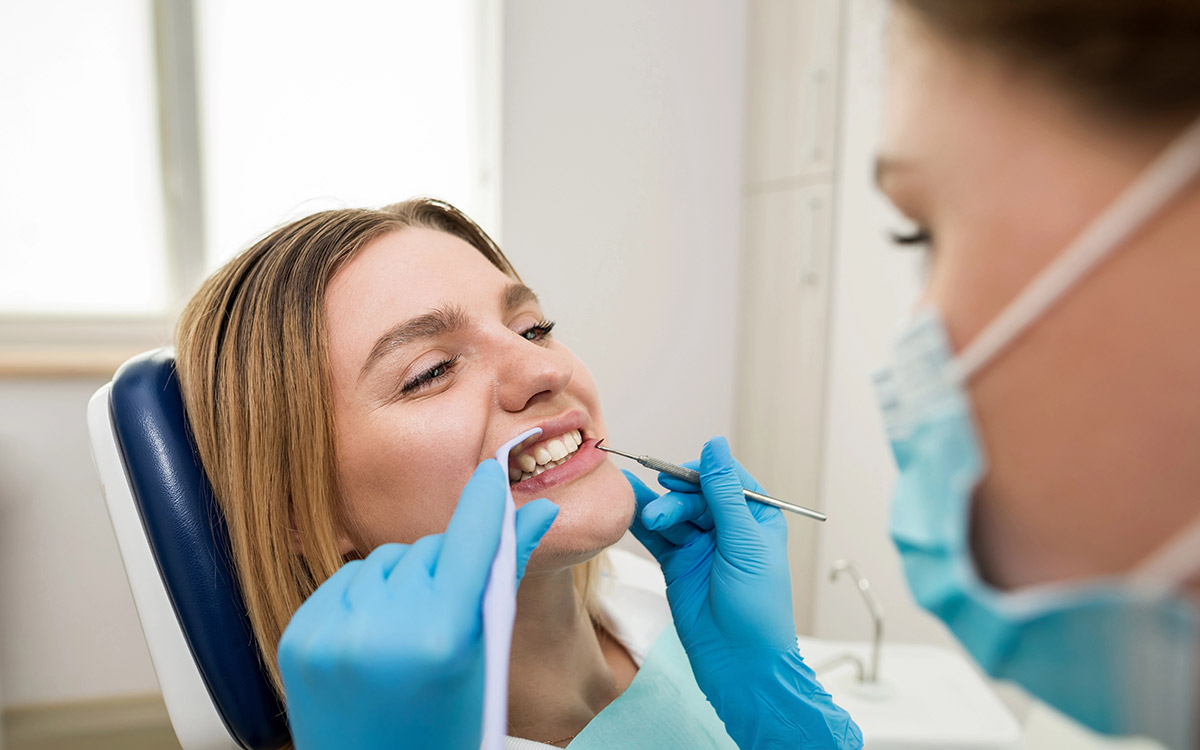Because great smiles aren’t made twice a year—they’re made every day.
Leaving the dentist’s office with that clean, polished smile always feels amazing. But maintaining that sparkle between appointments? That takes a little strategy and a lot of consistency. While dental visits give your teeth a professional reset, your daily habits play an even bigger role in keeping your smile healthy and beautiful.
At All About Smile Dental Group, with offices in Chino, Encino, and Rancho Cucamonga, we believe that oral health is an ongoing journey—not just a twice-a-year event. That’s why we encourage every patient to treat at-home dental care as part of their lifestyle. And no, it doesn’t require anything extreme—just smart, simple practices that make a big difference.
“The secret to a healthy smile isn’t in a tube of toothpaste—it’s in your routine.”
Build a Better Routine (And Stick With It)
Let’s start with the basics: brushing and flossing. You’ve heard it before, but are you really doing it the right way—and consistently enough?
Here’s what the American Dental Association (and our team) recommends:
- Brush twice a day for two full minutes using a soft-bristled toothbrush and fluoride toothpaste.
- Floss at least once per day, ideally at night, to remove food particles and plaque from between the teeth and under the gumline.
- Use a fluoride or antibacterial mouthwash to reduce plaque and strengthen enamel.
Be mindful of your brushing technique. Use small circular motions, avoid aggressive scrubbing (which wears down enamel), and don’t forget your tongue—it harbors bacteria, too. It may feel tedious at first, but with time, these habits become second nature.
Your Diet Makes a Big Difference
It’s not just what you brush with—it’s what you eat and drink that can impact how white and healthy your smile stays. Acidic and sugary foods wear away enamel, while certain beverages can stain even the healthiest teeth.
Common smile offenders include:
- Coffee and tea
- Soda and sports drinks
- Red wine and berries
- Sticky candies and desserts
On the flip side, you can boost oral health with foods that act like natural cleansers—like apples, celery, and carrots. These crunchy options increase saliva production and help remove surface debris.
Pro tip: Drink water after every meal to rinse away acids and particles. Not only is it good for your teeth, but it’s great for your whole body.
Break the Habits That Break Your Smile
Even people with solid oral hygiene routines fall into bad habits that undo their progress. Some of the most common smile-damaging habits include:
- Smoking or vaping: These habits stain teeth and increase the risk of gum disease and oral cancer.
- Chewing ice: It can crack enamel or damage dental work.
- Using your teeth as tools: Opening packages with your mouth might seem harmless, but it can lead to chips and fractures.
- Skipping your nightly routine: Going to bed without brushing allows bacteria to work overnight—and not in a good way.
If you grind your teeth at night, consider getting a nightguard to protect your enamel. If you struggle with any of the habits above, bring it up at your next appointment. We’re happy to help you find better alternatives.
“Between appointments, you’re the one in charge of your smile’s future.”
Be Smart with Whitening Products
Everyone wants a whiter smile, but not all whitening products are safe or effective. Over-the-counter strips and LED kits may work temporarily, but overuse can lead to tooth sensitivity and gum irritation.
At All About Smile Dental Group, we offer professional whitening options that are safe, effective, and designed for your unique enamel and gum health. Plus, we can guide you through maintenance so your results last longer without damaging your teeth.
If you’ve already had whitening done in our office, ask us about custom trays or touch-up treatments to maintain that glow year-round.
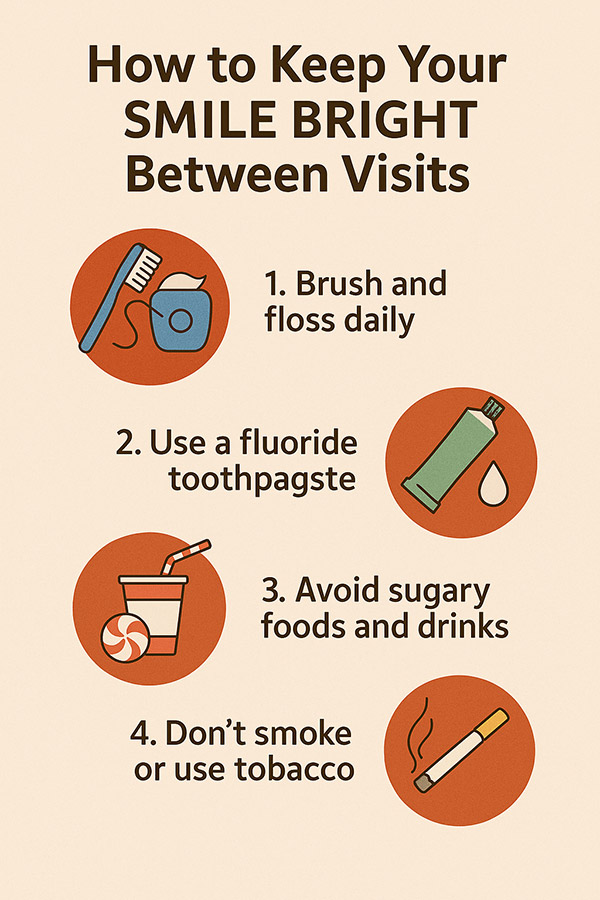
Don’t Skip Checkups—They’re More Than Just a Cleaning
We get it—life is busy. But routine dental checkups are essential for keeping your smile on track. During your exam and cleaning, we:
- Remove tartar that brushing can’t
- Check for early signs of decay or gum disease
- Review your at-home care and give personalized tips
- Help you prevent small issues from becoming big ones
Most patients should visit us every six months. But if you have certain conditions—like gum disease, braces, or a history of frequent cavities—you may benefit from more frequent care.
And let’s not forget: nothing beats that just-cleaned, fresh-mouth feeling. It’s like a reset for your whole oral care routine.
FAQ: Keeping Your Smile Bright at Home
Should I brush after every meal?
Not necessarily. Twice a day is usually enough, but if you snack frequently or eat sugary foods, consider rinsing with water or chewing sugar-free gum between meals.
How do I reduce staining from coffee or wine?
Try using a straw, rinse with water afterward, and avoid brushing immediately (wait 30 minutes to avoid enamel damage).
Is electric better than manual toothbrushes?
Both work well when used correctly, but electric brushes can improve technique and coverage for many patients.
What’s the best way to encourage my kids to brush?
Make it fun! Use timers, music, or reward charts—and let them choose their own kid-friendly toothbrushes.


